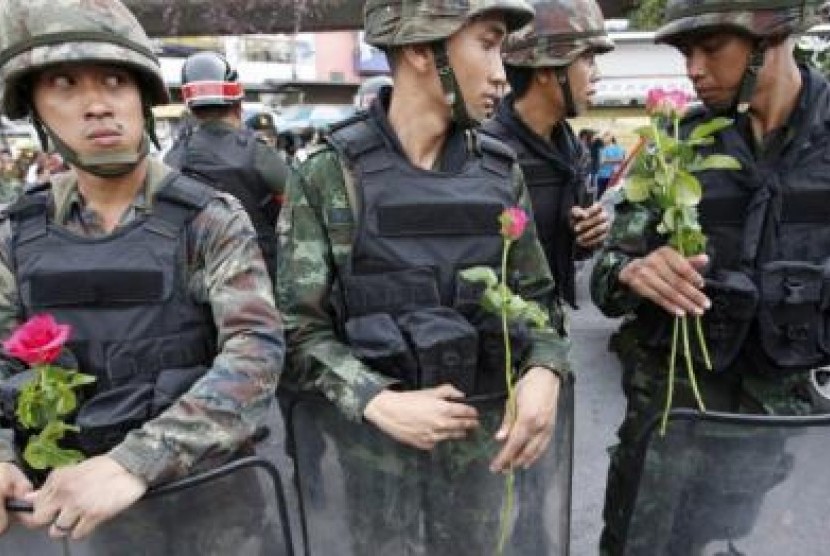REPUBLIKA.CO.ID, BANGKOK -- Thailand's junta chief has ordered eight ministries to buy rubber to help struggling farmers, reneging on a vow to end the country's long history of costly agricultural subsidies.
The kingdom's rubber farmers largely hail from the kingdom's southern provinces and were a key part of the anti-government protest movement which cheered a May 2014 coup that brought the military to power.
Global rubber prices have since collapsed and the Thai product currently fetches around 29 baht (79 cents) per kilogramme, nearly half what it was going for over the summer.
Farmers are calling on the junta to buy up rubber at 60 baht per kilogramme, something junta leader Prayut Chan-O-Cha has so far resisted.
The army toppled the democratically elected administration of Yingluck Shinawatra, in part railing against her family for courting votes among rice farmers in the north and northeast with heavy subsidies.
Prayut's military regime has launched a criminal prosecution against Yingluck over one such costly rice scheme -- which paid nearly twice the market rate for the crop.
Yingluck's trial for malfeasance linked to the scheme begins on Friday and could see her jailed for up to 10 years.
Yet faced with the growing angst of rubber farmers, Prayut has ordered key ministries to dip into their budgets to address the "big problem" of falling prices.
"Ministries will see how to spend their budgets," on rubber, he told reporters on Monday, adding that each had been tasked with submitting their plans by the end of the day.
It was not immediately clear how much the efforts to prop up the industry will cost.
In recent weeks rubber farmers have threatened to launch a wave of protests, in defiance of a current military ban on public demonstrations.
Protests would either prod a crackdown from the junta on a key support group or leave the military government exposed to accusations of favouritism.
"Rubber farmers are bleeding, the quick way to help them is to stop the bleeding," Somprat Wutthichan, a spokesman for one of the main southern rubber farmer groups threatening to protest, told AFP.
Prayut has called on farmers across Thailand to diversify their crops and has warned they can no longer rely on government bailouts when global prices fall.
After years of impressive growth, Thailand's economy is faltering, mired in high household debt, stuttering exports and low consumer confidence.
The junta has so far struggled to see through on its promise to kickstart the country's lacklustre growth.
Earlier this month the World Bank forecast that Thailand's GDP growth rate would slip from 2.5 percent in 2015 to just 2 percent this year -- by far the gloomiest regional prediction.


